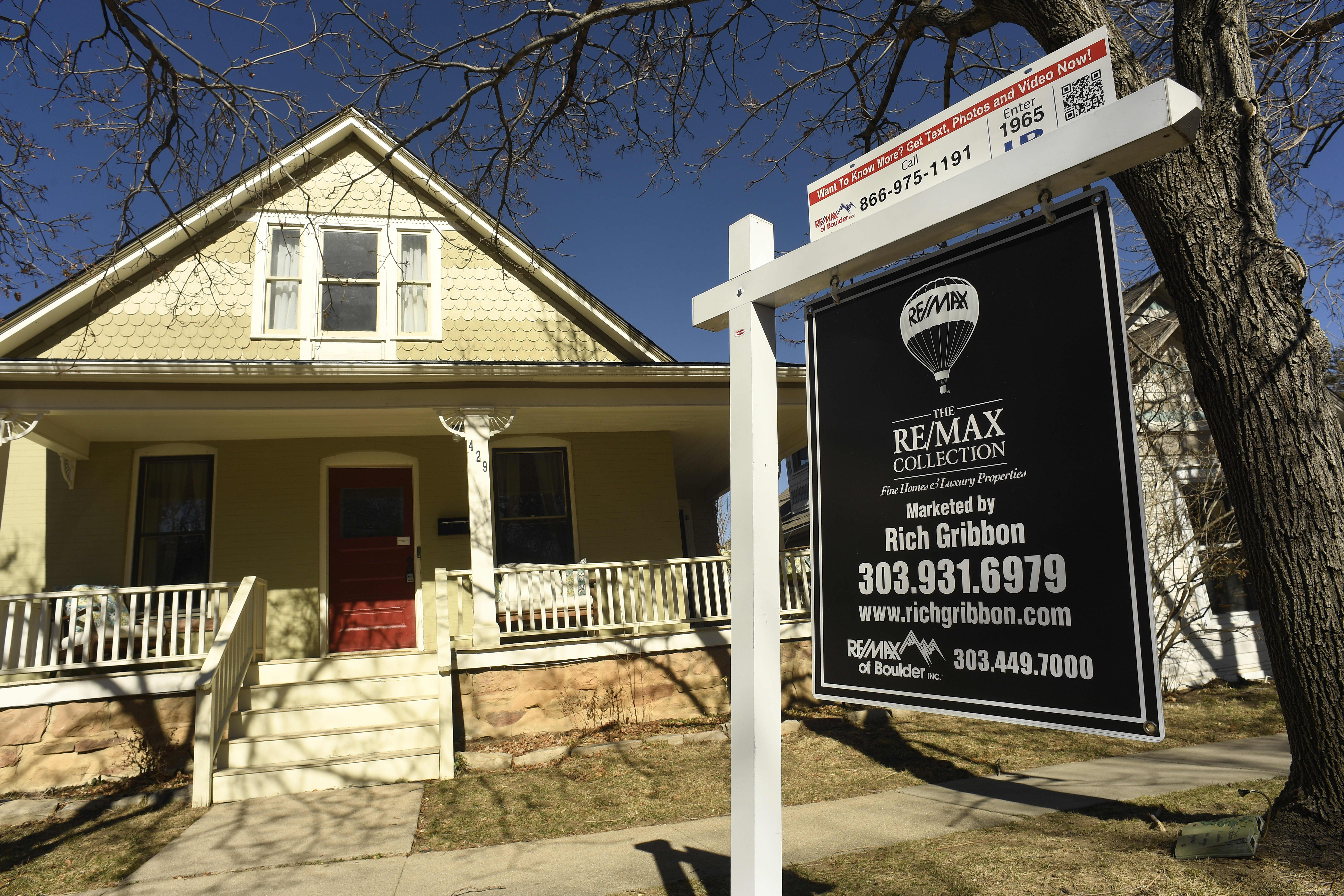Home for sale sign in Boulder, Colorado.
Helen H. Richardson | Denver Post | Getty Images
It is a lot harder to find an inexpensive home to buy and flip in today’s ultra-competitive housing market, but those who can will make a hefty profit.
While home flipping activity overall dropped in the third quarter of this year, gross returns for flippers soared to the highest level in 20 years, according to a new report from ATTOM Data Solutions. The report tallied 57,155 single-family homes and condominiums in the United States that were flipped in the third quarter of 2020.
A flip is defined as a home that was purchased and sold in the same 12-month period. Those flips represented 5.1% of all home sales during the quarter, down from 6.7% percent in the second quarter and 5.5% in the third quarter of 2019, the report said.
The drop in activity was likely due to the severe shortage of homes for sale, especially on the lower end of the market, where flippers generally like to play.
Sales of homes priced below $100,000 were down 22% in October year-over-year, according to the National Association of Realtors. Those priced between $100,000 and $250,000 were basically flat. Meanwhile sales of pricier homes, between $500,000 and $750,000, were up over 60%.
The median price of a flipped home nationally in the third quarter was $240,000.
While the home-flipping rate fell during that time, the gross profit on the typical flip (the difference between the median sale price and the median price paid by investors) rose to $73,766, up from $69,000 in the second quarter and $61,800 in the third quarter of last year, according to ATTOM.
This does not include any money investors put into the home, like repairs and renovations, before selling.
The gross profit was the highest since 2000, when ATTOM began tracking this data. The increase in profit boosted the typical return on investment to 44.4%.
Coronavirus pandemic fuels gains
ATTOM attributes the gains to the effects of the deadly coronavirus pandemic that shutdown much of the nation, and the world, in the spring and has continued to keep people mostly at home through 2020.
“This all happened in the context of the pandemic, which has created unusual circumstances for the housing market to thrive, and that has included the home-flipping business,” said Todd Teta, chief product officer at ATTOM Data Solutions. “Too much is uncertain these days to say whether the latest trends will continue. But for now, the prospects continue looking up for home flipping after a period when they were trending the opposite way.”
Home flipping profits had been falling in the few years leading up to the pandemic because house price gains were shrinking. Demand for housing came roaring back starting in May, partly due to the pent-up demand from the spring, when home sales nearly stopped cold. Then it continued to grow, as the stay-at-home culture created by the pandemic caused more people to want larger homes in the suburbs for working and schooling.
Record low mortgage rates have also brought more buyers out and made it more competitive for flippers. About 57% of flippers use all cash, but they can’t always outbid those using financing.
“Low interest rates and low inventory have made flip acquisitions challenging, resulting in a 50% reduction in the number of flips we are currently managing,” said Vipin Motwani, managing principal at Iron Gate Development in the Washington, D.C. metropolitan area. “However, at the same time, those same two factors have also resulted in house prices increasing, which in turn has led to a 5% to 10% price increase over initial projections.”
Looking locally, investors saw the biggest annual increases in flipping profit margins in Raleigh, North Carolina; Phoenix; Kansas City, Missouri, and Las Vegas.
The smallest profit margins were in Boulder, Colorado, Corpus Christi, Texas; Hilton Head, South Carolina; Reno, Nevada and Killeen, Texas.
The highest flipping gross profits, measured in dollars, were in San Jose, California ($290,000), Ventura, California ($180,000); Bridgeport, Connecticut ($177,500); Los Angeles ($161,500) and San Francisco ($158,500).
The smallest were in Corpus Christi, Texas ($14,817 profit); Hilton Head, South Carolina ($24,000); Killeen, Texas ($26,197); El Paso, Texas ($27,116) and Lubbock, Texas ($28,869).
